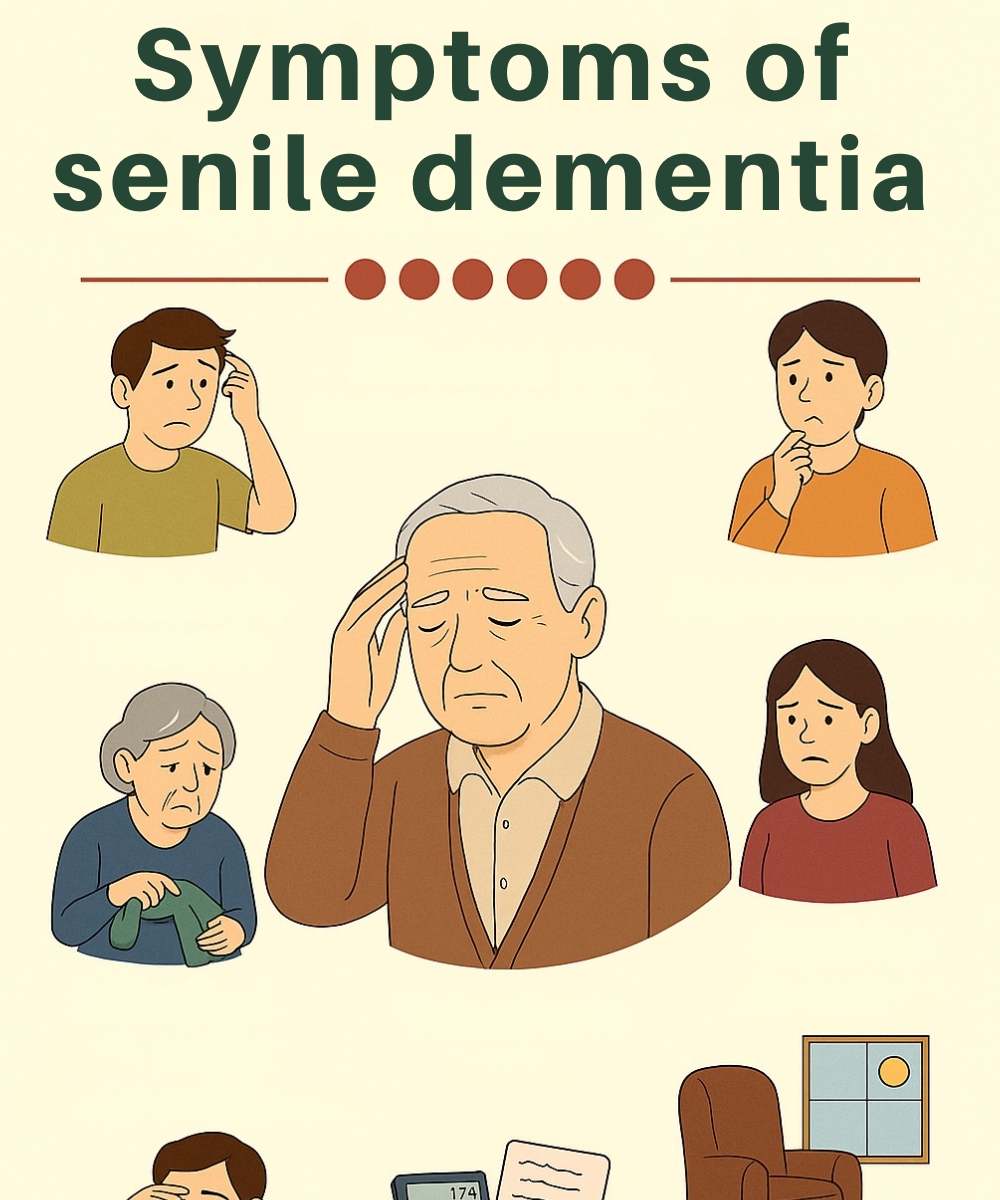ADVERTISEMENT
## **Treatment Options**
There is no cure for most dementias, but treatment can help manage symptoms.
### **Medications:**
* **Cholinesterase inhibitors** (Donepezil, Rivastigmine): Enhance communication between nerve cells
* **Memantine**: Regulates glutamate and improves cognition in moderate to severe cases
* **Antidepressants or antipsychotics** (used cautiously): Manage mood disorders and hallucinations
### **Therapies:**
* **Cognitive stimulation therapy (CST)**
* **Occupational therapy**
* **Physical exercise and rehabilitation**
—
## **Lifestyle and Supportive Strategies**
### **Cognitive Health Maintenance:**
* Puzzles, reading, learning new skills
* Regular conversations and social engagement
### **Dietary Considerations:**
* Mediterranean diet (rich in vegetables, fish, whole grains)
* Limiting processed sugars and saturated fats
### **Daily Routine and Environment:**
* Establish consistent schedules
* Use visual cues and memory aids
* Create a safe, clutter-free home
—
## **Supporting a Loved One with Dementia**
### **1. Practice Patience and Empathy**
Dementia is frustrating and confusing. Show compassion rather than correction.
### **2. Use Simple Communication**
Short sentences, yes/no questions, and calm tone are best.
### **3. Encourage Independence Where Possible**
Give them autonomy in small tasks to maintain confidence.
### **4. Watch for Caregiver Burnout**
Caring for someone with dementia is emotionally and physically taxing. Seek help and take breaks.
—
## **Preventive Measures for Brain Health**
While not all dementia is preventable, research shows some lifestyle habits can reduce risk:
* **Stay mentally active**: reading, writing, learning
* **Stay physically active**: walking, yoga, strength training
* **Eat a balanced diet**
* **Sleep well and manage stress**
* **Stay socially connected**
—
## **Living With Dementia: A Message of Hope**
Though dementia is a challenging diagnosis, life doesn’t end with it. Many people live meaningful lives for years after diagnosis, especially with early intervention and family support.
Early recognition of the signs—especially changes in memory, behavior, and communication—can make all the difference in planning for care, preserving dignity, and creating a safe, comfortable environment.
—
## **Conclusion**
Senile dementia—now more properly recognized as **age-related dementia syndromes**—represents a major global health concern. As caregivers, family members, and individuals, understanding the early symptoms and progression is essential.
The earlier dementia is identified, the more options are available for managing symptoms, supporting quality of life, and planning for the future.
If you’ve noticed any of these symptoms in a loved one or yourself, don’t hesitate to reach out to a medical professional
. Support, guidance, and resources are available—and early steps can make all the difference.
—
Would you like this article formatted as a printable brochure or infographic? I can also help you write a social media version for awareness. Let me know!
